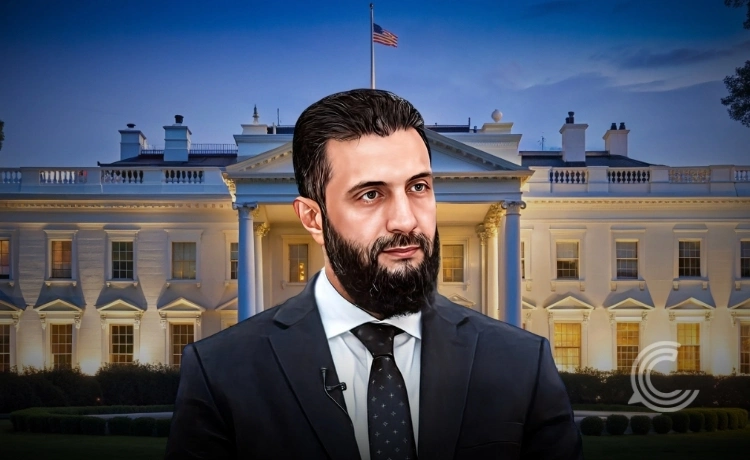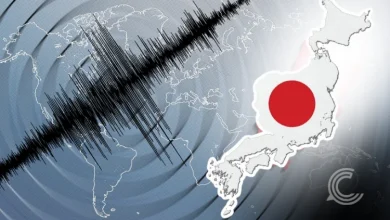Syrian President al-Sharaa’s US Visit Signals Diplomatic Shift

Key Points:
- President Ahmed al-Sharaa is the first Syrian leader in history to be formally received at the White House, just months after his rebel forces toppled the long-entrenched Assad regime
- The landmark visit followed the U.S. government removing al-Sharaa from its “Specially Designated Global Terrorist” blacklist, a major diplomatic concession clearing the path for this engagement
- The new Syrian President seeks the permanent repeal of crushing U.S. sanctions, while the U.S. aims to cement a new strategic partnership, potentially including Syria joining the international coalition against the Islamic State (IS)
Syrian President Ahmed al-Sharaa arrived in Washington D.C. for a historic meeting with the U.S. President Donald Trump at the White House.
The visit marks the first-ever by a Syrian head of state since the country gained independence in 1946. This starts new chapter in the U.S.-Syrian relations and the country’s rapid, post-conflict political realignment.
An Unthinkable Diplomatic Turn
The official visit culminates a dizzying year of diplomatic activity following al-Sharaa’s ascension to power after his rebel forces ousted Bashar al-Assad late last year. The meeting, which comes six months after the two leaders first met in Saudi Arabia, firmly establishes al-Sharaa as a central figure in Middle Eastern geopolitics.
U.S. President Trump has enthusiastically championed the new Syrian leadership, describing al-Sharaa as “a tough guy in a tough neighborhood” and commending his “very good job” in restoring order to war-devastated regions of Syria. This rhetoric signifies a profound shift from the decades of isolation and antagonism that characterized relations under the previous regime.
From Militant Commander to Global Statesman
The most remarkable aspect of this political development is the personal transformation of the Syrian President. Before leading the opposition, al-Sharaa was the head of a rebel group, Hayat Tahrir al-Sham (HTS), which was previously an affiliate of Al-Qaeda and designated a terrorist organization by the U.S. In fact, al-Sharaa once had a $10 million U.S. bounty on his head.
His journey from a militant past to the status of a global statesman was meticulously engineered and executed. It began with a publicized severing of official ties between HTS and Al-Qaeda in 2017. Upon taking power, the new Syrian government embarked on an aggressive foreign policy shift, pivoting decisively away from Assad’s traditional allies, Iran and Russia, and towards the U.S., Turkey, and Gulf nations.
As reported by The Washington Post, this pivot was crucial, with analysts like Michael Hanna of the International Crisis Group noting that al-Sharaa “has decided he really needs the United States and U.S. support” to secure financial aid from Gulf states and gain leverage in regional security issues. This pragmatic realignment, combined with a demonstrated commitment to counter-terrorism operations against remaining IS cells, allowed Washington to justify removing his name from the terrorism blacklist, a move the State Department confirmed was “in recognition of the progress demonstrated by the Syrian leadership.”
Sanctions and Security
A primary objective for the Syrian delegation is securing international funds for reconstruction. The World Bank estimates the cost of rebuilding the war-battered nation following 14 years of civil war could conservatively exceed $216 billion.Attracting this capital hinges on the permanent repeal of all sanctions.
While President Trump has used executive action to waive some sanctions, the most stringent measures remain. The Caesar Syria Civilian Protection Act of 2019, which imposes sweeping sanctions over human rights abuses by the former regime, requires an act of Congress to be permanently repealed. Al-Sharaa is expected to lobby aggressively for this repeal, arguing that the measures are no longer justified and impede necessary economic recovery.
Security is also a top focus. Washington’s envoy to Syria, Tom Barrack, has indicated that al-Sharaa is expected to sign an agreement to formally join the U.S.-led coalition against the Islamic State group, reported by The Times of India.
International Reaction and Future Challenges
The international community is watching this development closely. Days before the White House meeting, the U.N. Security Council voted to lift sanctions on al-Sharaa and his interior minister, a U.S.-backed effort that Ambassador Mike Waltz stated sends a strong signal that Syria is entering a new era, as reported by The Associated Press. Britain also removed HTS from its list of terrorist groups, signaling growing acceptance of the new government as a constructive, if complicated, partner.



